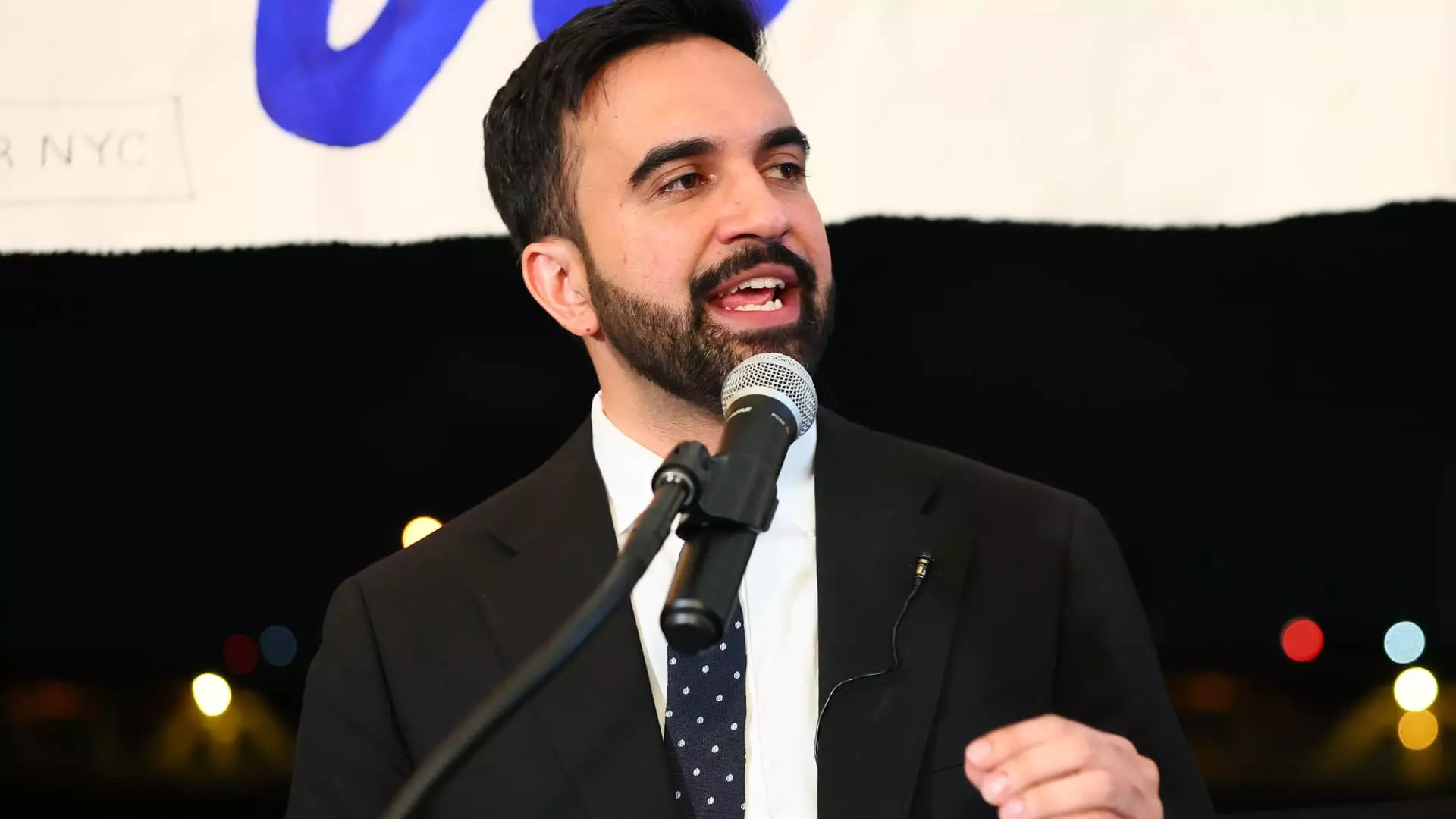Political climates often send ripples through the financial fabric of our society, particularly in volatile sectors like banking and real estate. The recent decline in shares of Flagstar Bank, a rebranded entity of New York Community Bancorp, provides a striking example of how political outcomes can shape financial performance. Following the apparent success of Zohran Mamdani in securing a key position within the New York City Democratic mayoral primary, investors reacted swiftly, sending Flagstar’s stock tumbling by 6%. This immediate response is indicative of the unpredictable relationship between political outcomes and market performance.
Flagstar’s recent struggles are nuanced and multifaceted. While they have faced increased scrutiny due to their exposure to real estate markets—a sector that has been notoriously unstable—the emerging policies that may come from a Mamdani-led administration have investors fraught with uncertainty. Political leaders wield the power to make decisions that have real-world impacts on businesses, and in this climate, the specter of a rent freeze could cast a long shadow over the bank’s profit margins.
What a Rent Freeze Could Really Mean
Mamdani’s campaign pledge to freeze rent increases in stabilized units must be scrutinized from both ethical and financial angles. While the promise to stabilize housing costs may resonate with distressed tenants, the financial stakeholders risk becoming collateral damage. Deutsche Bank analyst Bernard von-Gizycki has pointed out that approximately $16 billion to $18 billion of Flagstar’s loan portfolio is intricately tied to New York’s complex rent regulations. This is not just a statistic; it’s a declaration of potential financial turmoil.
Moreover, the notion that a temporary pause on rent hikes could destabilize these multi-family rental properties raises important questions about the sustainability of such policies. Are we prepared to endure short-term hardship for the sake of long-term gains? And who bears the brunt of those decisions? While some analysts, like Morgan Stanley’s Manan Gosalia, argue that a short-term stay on rent increases might be “manageable,” the future remains shrouded in uncertainty. A longer-term moratorium might pressure Flagstar into bolstering their loan loss reserves, leading to a trickier financial landscape for not just the bank, but the entire real estate sector.
A New Era for Investment
The implications of Mamdani’s platform extend beyond just rent controls. By advocating for an increased corporate tax rate—a policy area he can only indirectly influence as mayor—Mamdani signals a shift in the administration’s economic ethos. This raises critical questions about the attractiveness of New York as an investment destination. Will potential investors perceive the capital city as a place where business interests take a backseat to social equity? In a nation grappling with nuanced divides between business and community interests, the city’s financial future could rely heavily on how Mamdani’s ideology translates into action.
Recent declines in other real estate stocks, such as SL Green Realty and Vornado Realty Trust, further amplify the narrative of caution resonating across the market. These declines are not just isolated to Flagstar; they draw a picture of a broader apprehension within the sector towards a potentially disruptive political administration. Investors are skeptical about the anticipated outcomes of policy changes and their reverberations through the financial ecosystem.
Diving Deeper into Political Engagement
As the whirlwind of political dynamics swirls around New York City, a conversation about civic engagement and accountability emerges. Mamdani’s victory isn’t just a triumph for one representative; it marks a turning point in how urban issues like housing affordability are approached. The critical question remains: Are voters prepared for the consequences of these decisions, especially when the financial viability of institutions is at stake?
Moreover, there’s a need for an ongoing dialogue about the balance between necessary reform and sustaining economic vitality. What sacrifices will we make for social policies? It is imperative for voters to consider these questions as they engage in the electoral process—without being misled by populist promises that might jeopardize the economic stability of an already strained financial ecosystem. The mere thrill of a new political face may lead voters down a path of unforeseen fiscal hardships.
The stakes are higher than ever as we stand on the precipice of fiscal transformation. The real challenge lies ahead, as we navigate the intersection of socio-economic responsibility and political accountability.

